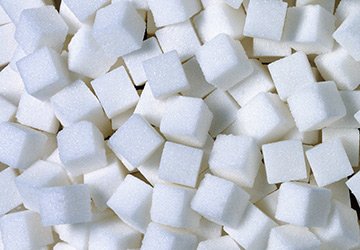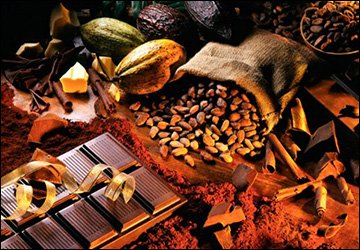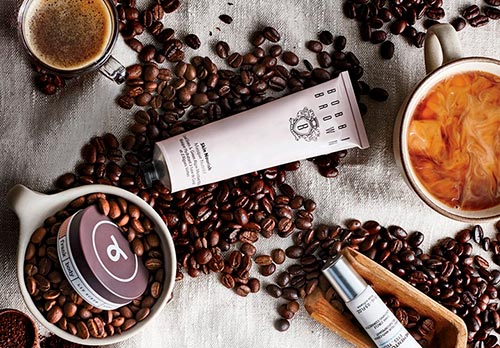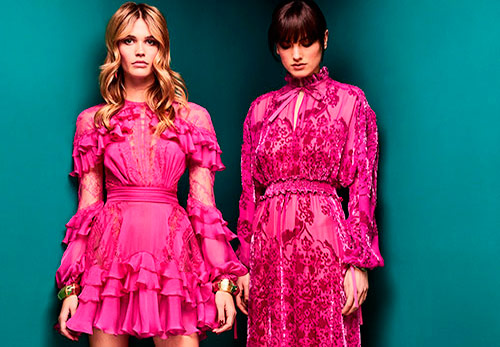BLOG
How to give up coffee, and what are the pros and cons
Recently, thanks to social networks and the ubiquity of coffee houses, coffee consumption has been elevated into a kind of cult. Many girls literally cannot live without constant drinking of coffee, especially now, when on the street autumn and winter is coming... The girls complain that the day doesn't start until they have had their coffee and chocolate!
I was lucky, since childhood, my parents protected me from coffee, tea and any sweets, so it's hard for me to understand why drink coffee, why eat chocolate. I have enough water, compote, kefir and brewed mint. I am writing this not at all to boast of my independence from addictions, but in order to prove by my example that life without coffee, sweets and tea can be wonderful.
Only my experience is not suitable for almost anyone. Therefore, consider an example of refusing coffee ...
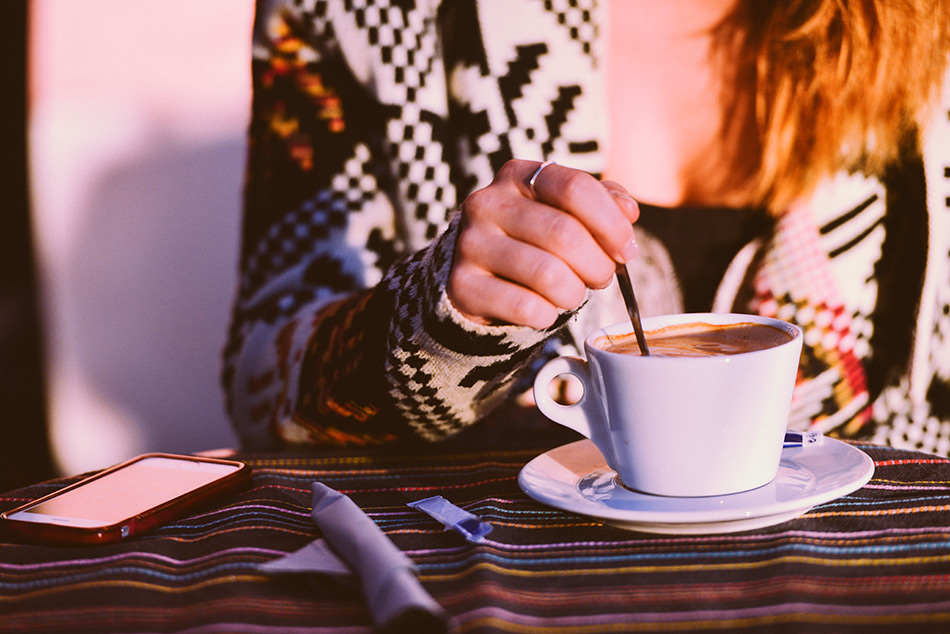
The idea to quit caffeine came to my mind, as usual, late at night. I drink a lot of drinks containing caffeine and wondered if I could give it up and how I would feel without the usual nervous tremors at my fingertips. And while Gilmore Girls says it's okay and great to be a coffee addict, health professionals say the opposite.
Of course, I'm far from the only one who constantly gets sleep deprived of artificial energy drinks. Most people suffer from a lack of adequate sleep, according to Christopher Drake, Ph.D., director of sleep research at Henry Ford Hospital. “One hour of lost sleep certainly won't ruin your life, but when we don't get enough sleep on a regular basis, the lack of sleep becomes chronic,” he says. And coffee is not an option; Caffeine can ease feelings of sleepiness, but you will still need sleep. “Caffeine certainly reduces the feeling of acute sleep deprivation and invigorates, but at the same time, the person develops chronic sleep deprivation. And very soon it becomes a serious problem. "
Before we go any further, I want to say that in reasonable doses, coffee is not harmful to health. It is indeed addictive, but studies have shown that moderate amounts of coffee can help prevent certain health problems, such as heart disease, diabetes and Parkinson's disease.

Caffeine, like so much more, should be consumed in moderation and with caution, not as a substitute for rest. Dr. Drake compared the effects of sleep deprivation with alcohol intoxication, noting that it is our sleepiness that often causes occupational injuries and accidents. Lack of sleep also makes it easier to gain weight and is more likely to develop diabetes - two diseases to which I have a predisposition.
“You need to make sleep a priority in your life,” advises Dr. Drake.
And I decided to do so. I prepared myself mentally, warned family members, and learned all the ways to avoid sleepiness. Quitting caffeine will inevitably cause withdrawal symptoms, so I stocked up on pain-relieving capsules and assured myself that the doctor was right: sleep should be a priority. Throughout September, I've been writing down how the lack of caffeine affects me. The difficulty of the task at hand made it all the more interesting. But there was still a real problem: how can I be a pleasant person at 2:00 pm if I don't have a hot cup of coffee in my hands?
I gave up coffee for a month
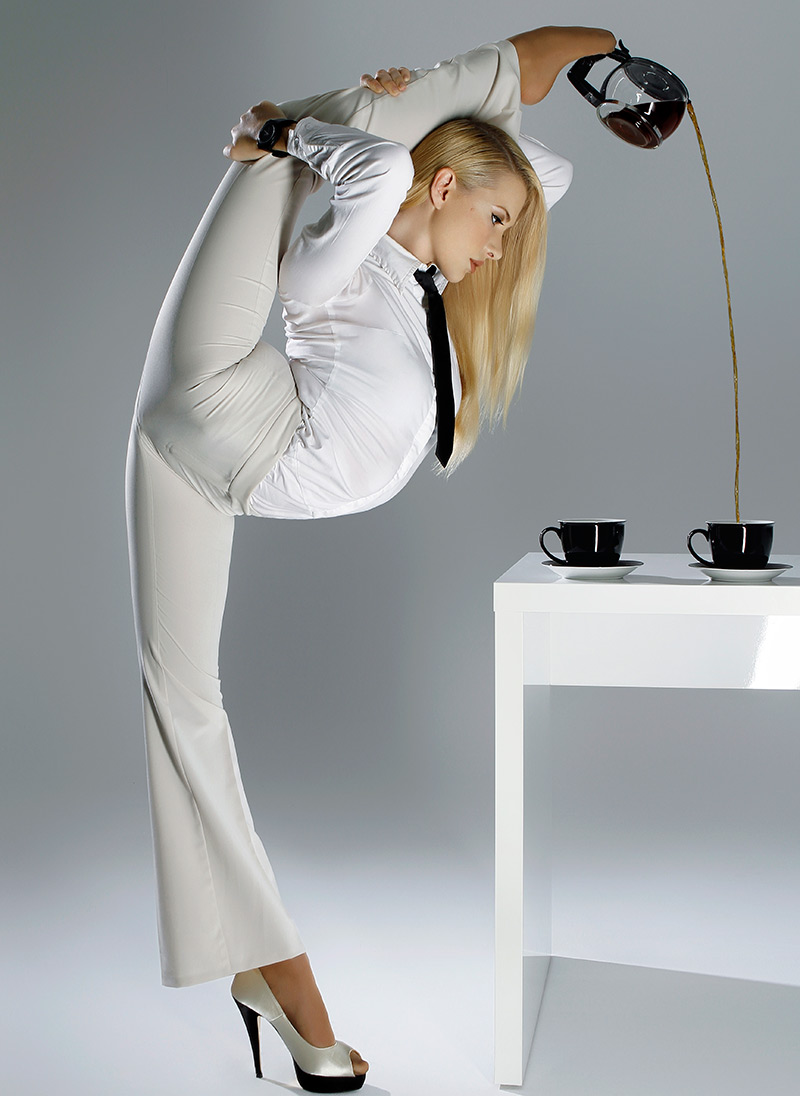
Part 1: Sleep
As mentioned earlier, my poor sleep state was the main motivation for spending September without caffeine. I hoped that if I did not use caffeine, I could go to bed a little earlier, but my expectations were not met. After all, I have been suffering from insomnia since I was seven. Quitting caffeine wouldn't solve the problem overnight.
I was so naively mistaken.
For most of September, I fell asleep quickly and slept without hind legs like a puppy. I went to bed and, without even turning off the light, fell into a dream. I didn't even wake up at night. Of course, there were nights when I didn’t sleep well, especially if I was focused on something, but most of the time I just rolled over and puffed on.
Dilemma: Falling asleep early and having eight wonderful hours of rest, you wake up godlessly early. I woke up around 4:30 or 5:00 in the morning - and without the caffeine, there is little joy in getting up so early. I worked much more actively, I used to feel hungry and so on. So, although I bought time by waking up before sunrise, I was tired much earlier.
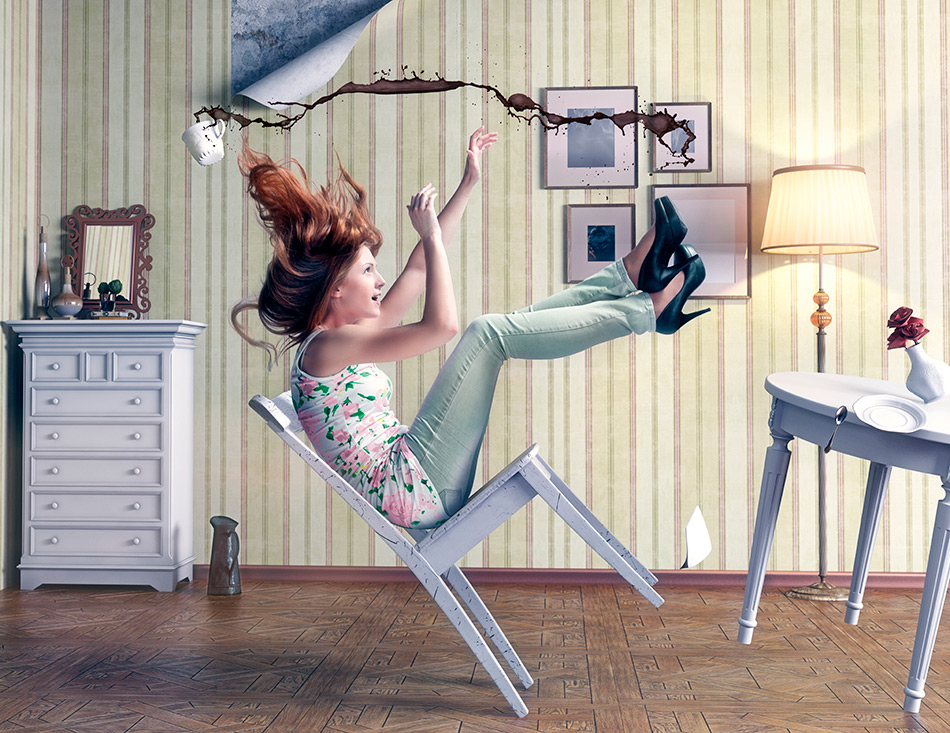
Part 2: Health and wellness
Already at 10:19 am on September 1, I started having a headache. At first it was a slight aching pain, through which my body seemed to remind me: please pour coffee into me right now. But by the end of the day, my head was buzzing so hard that I felt nauseous.
My caffeine-free September often gave me a date with nausea - more than once I went to bed at 7 pm, I felt so bad. I broke all the plans made with my friends, tried to smear the back of my head with a soothing mint balm and drank a lot of water.
After about half a month, the headaches had diminished significantly, but during those 15 days I was closer to the edge than ever before. I was in a fighting mood, but I constantly squinted and bit all my lips. I was chatting with friends and they were joking that I needed to give the DVD of the first season of "Clinic" (a series that I really can't watch without excitement).
But when my headache was gone, everything was fine pretty quickly. A visit to the doctor showed that my blood pressure had dropped (!). I also noticed a change in my anxiety disorder: I still had anxious thoughts, but each time they appeared, I was able to calm myself much faster than if I was on caffeine.
So, for 15 days I was unhappy, and then it was over, and I felt good. I was still very aroused, but I think these are echoes of my pre-experiment state.
Part 3: Productivity
The truth is, my performance was off the charts with caffeine.
My usual schedule is: work in the office from 8:30 to 17:00, dinner, the rest of the evening I write. Without caffeine, I not only felt tired, but also completely devoid of inspiration. Instead of writing normally, I had to grind out the lines. In the year leading up to the caffeine-free month, I could count the number of nights I didn’t write on my fingers. But in September everything was exactly the opposite: I practically did not write at all.
And as luck would have it, it was for September that I planned a writing marathon. Yes, I did write for hours on end on weekends, but I also walked up and down the stairs endlessly, looking out the window and stuffing chips into my mouth. This, of course, was not my usual level of concentration.
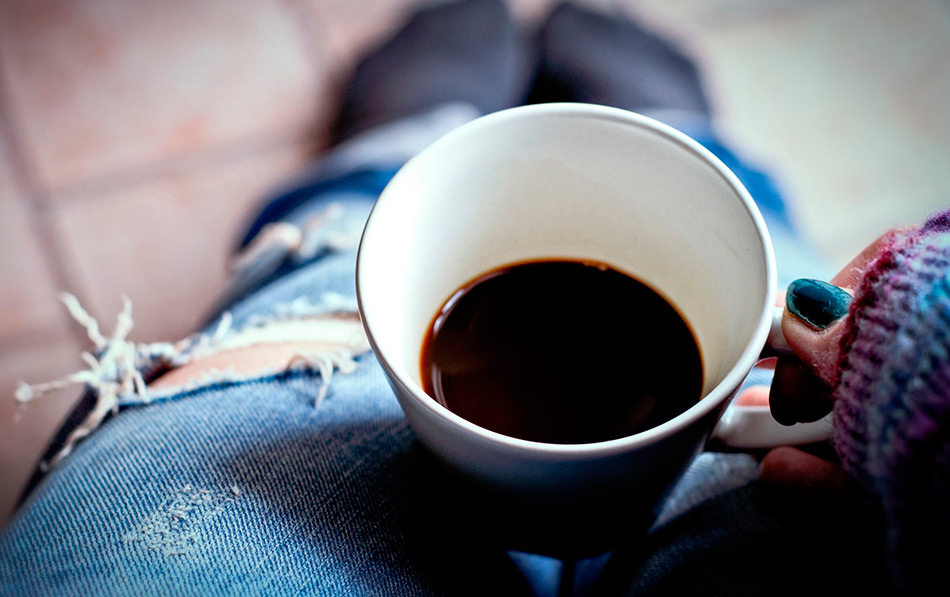
Part IV: Money
I began to wonder how my caffeine consumption was affecting my finances. In August, my husband and I spent $ 35 on coffee at Dunkin Donuts and $ 5.18 at Starbucks. We also spent about $ 126 on caffeinated beverages in restaurants and gas stations, and $ 16 on packs of Diet Coke in stores. I drink most of my coffee at work for free (thanks boss). But together we spent $ 245.16 on caffeine for the two, of which $ 122.58 on me.
For reference. Here's a list of the great caffeinated items I haven't bought in these 30 days:
Coffee;
Tea, with the exception of teas, which taste terrible and make you sleepy;
Soda;
Decaffeinated coffee (don't believe the name);
Chocolate.
When you don't use caffeine, you don't have many options for "what to drink my sandwich with." I don't like sprite: firstly, it's just solid sugar, and secondly, it is associated with childhood memories of how I was sick and had to stay at home.This September I bought three packs of Lacroix ($ 3.99), two horribly disgusting decaffeinated teas ($ 2.34), and spent less than $ 2 on soda. I once went to Dunkin Donuts where I ate a bagel without cream cheese (about a dollar). This means I saved about $ 107 in total in September by not consuming caffeine.
Looking ahead
On the phone with Dr. Drake, I asked the sleep guru a very important question: "Do you drink coffee?"
He laughed and answered honestly, "Yes."
I haven't completely eliminated caffeine from my life. On October 1, 2024, I started my day with a cup of coffee. It's so cool!
One of the strangest things I realized without using caffeine is how deeply it has penetrated into our lives, because it is much less pleasant to talk over a glass of water. I'm not going to go back to my old life as a coffee lover, but I do plan to drink coffee in the morning - and sometimes, if the work day is conducive to this, I will have a cup of coffee at 2 pm.
Published on matrony.ru
Comments and Reviews
Add a comment
Rating news
Shades of clothing that make women look younger
What shades of hair make women younger: rules and photos
Funny wedding dresses - photos and ideas
12 most expensive down jackets for the winter
How to look 25 at 40: tips from supermodels
Beautiful schoolgirls
Anti-aging haircuts and hairstyles for women
Fashionable skirts for autumn and winter
Fashionable women's trousers for the cold season
Fashionable and stylish sandals for summer 2024
Spring-summer 2024
 Fashionable dresses and tops with thin spaghetti straps
Fashionable dresses and tops with thin spaghetti straps
 Bandana tops: how to wear stylishly and beautifully
Bandana tops: how to wear stylishly and beautifully
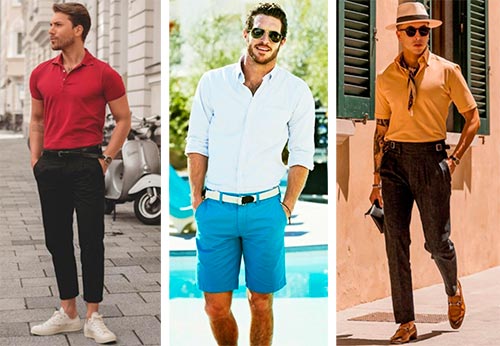 How to put together the perfect men's wardrobe for the summer
How to put together the perfect men's wardrobe for the summer
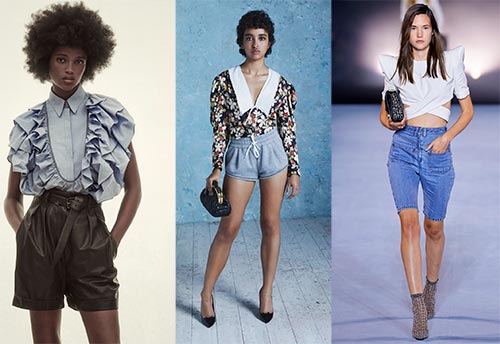 Fashionable shorts for spring-summer 2024
Fashionable shorts for spring-summer 2024
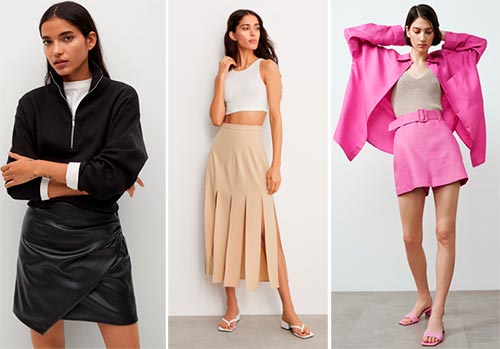 Fashionable skirts for spring-summer 2024: a guide to online shopping
Fashionable skirts for spring-summer 2024: a guide to online shopping
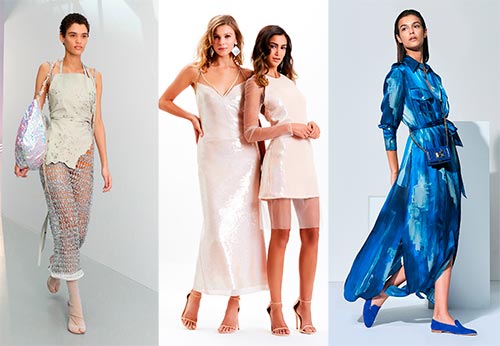 The most fashionable dresses spring-summer 2024: styles and colors
The most fashionable dresses spring-summer 2024: styles and colors
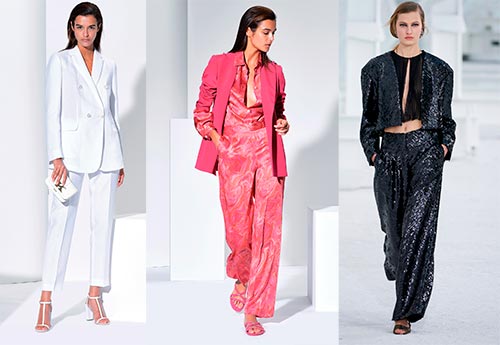 Fashionable total look 2024: ideas of images and trends
Fashionable total look 2024: ideas of images and trends
